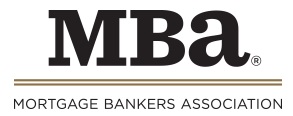WASHINGTON, D.C. (January 10, 2018) – (RealEstateRama) — Dave Motley, CMB, Chairman of the Mortgage Bankers Association (MBA), testified today before the U.S. House Committee on Veterans’ Affairs Subcommittee on Economic Opportunity at a hearing entitled, “Home Loan Churning Practices and How Veteran Homebuyers are Being Affected.” His full written testimony is available here. Below is Motley’s oral testimony, as prepared for delivery:
“Chairman Arrington, Ranking Member O’Rourke, and members of the subcommittee, I appreciate the opportunity to testify this morning on behalf of the Mortgage Bankers Association.
“My name is Dave Motley, and I am President of Colonial Savings, a privately-held, federally-chartered thrift headquartered in Fort Worth, Texas. For over 65 years, we have been originating loans for veterans. In fact, our Founder, a veteran himself, saw the opportunity to serve veterans returning from World War Two. Today 10% of our origination volume is to veterans and we service 6,000 loans for VA borrowers.
“I am also the Chairman of the MBA, a Certified Mortgage Banker, I have previously served as a Board member of the Texas MBA, and a member of the Community Bank Advisory Council of the Consumer Financial Protection Bureau.
“I would like to begin by applauding the subcommittee for its efforts to better understand problematic practices with respect to certain mortgage refinances marketed to service members and veterans of the U.S. military.
“The VA’s mortgage loan programs play an important role in increasing the availability of mortgage credit for service members, veterans, and surviving spouses. By guaranteeing a portion of the loan balance, the VA enables lenders to offer loans with more favorable terms, such as no required down payment. While those borrowers seeking to refinance their VA loans may apply and be evaluated through their lender’s full underwriting process, the VA Interest Rate Reduction Refinance Loan (IRRRLs) allows for a streamlined refinance process that is often faster and entails lower costs.
“Generally, refinancing with an IRRRL allows the borrower to lower the interest rate on the mortgage. In doing so, the borrower incurs fees from the lender, which are either paid by the borrower at origination or rolled into the principal balance of the loan.
“Recently, a small number of lenders have undertaken aggressive-and potentially misleading-advertising campaigns to generate increased IRRRL volumes and fees. In some cases, this advertising targets VA borrowers who have just recently engaged in an IRRRL, convincing them to refinance yet again to lower their interest rate by a modest amount while adding even more fees to the principal balance on the loan. Such serial refinancing, or churning, strips borrower equity and often further extends the time period it takes for the costs to be recouped through lower payments. Some lenders also use the IRRRL to lower the rate, but only by moving the veteran from a 30-year fixed rate to a 3-year adjustable rate mortgage.
“Many borrowers may not fully comprehend the net economic impact of their decision to refinance, leaving them vulnerable to situations in which they add substantial amounts to their overall loan balance while achieving only small reductions in their monthly payments. This is not what the program was intended to do, and these practices should be put to an end.
“Aggressive use of IRRRLs by some lenders also threatens to weaken investor demand for Ginnie Mae securities that are partially backed by VA loans. This outcome increases costs and negatively impacts access to credit for a wide range of borrowers.
“It is worth noting that IRRRL churning is not a widespread problem among the mortgage lender community, but rather an activity that is confined to a small subset of lenders. MBA fully supports supervisory efforts to improve the policing of the market, as well as new rules to remove the ability or incentive for any lenders to engage in churning.
“We applaud Ginnie Mae for taking important steps to both study and address this issue, however the problem of loan churning cannot be solved by Ginnie Mae alone. Fortunately, many practical options fall within the existing authority of VA to implement.
“For example, instituting a maximum recoupment period would inhibit lenders from charging substantial fees in exchange for minor reductions in mortgage interest rates. Similarly, requiring a net tangible benefit test, which is already required for FHA streamlined refinances, could more effectively ensure that the terms of the refinance produce real benefits for borrowers. Limits on the amounts that can be added to the principal balance would reduce equity stripping. And finally, targeted consumer financial education about churning can better inform borrowers about the potential for abuse.
“It’s important to focus on options that target churning while not impeding the ability of service members and veterans to obtain a beneficial refinancing. We recognize that the VA program is a unique loan program – an entitlement program for veterans who have served our country. As such, while we support quick action to limit abuses, it needs to be done thoughtfully to ensure that legitimate low cost refinancing options for veterans are retained.
“MBA is committed to the promotion of best practices and standards that generate a healthy and responsible mortgage market, and we stand ready to assist in developing and implementing solutions to the problem we have discussed today.
“Thank you again for the opportunity to testify. I look forward to your questions.”
CONTACT
Rob Van Raaphorst
(202) 557- 2799


